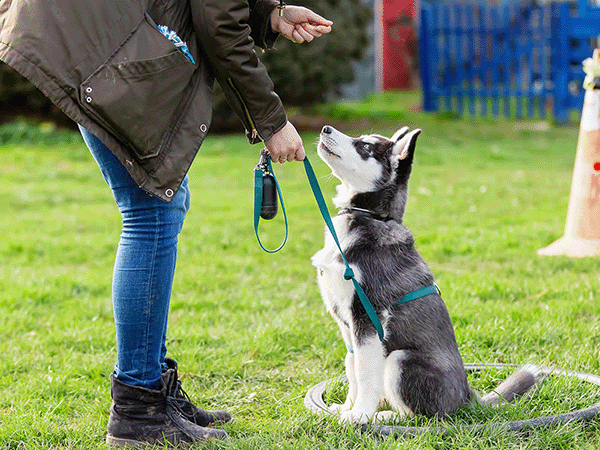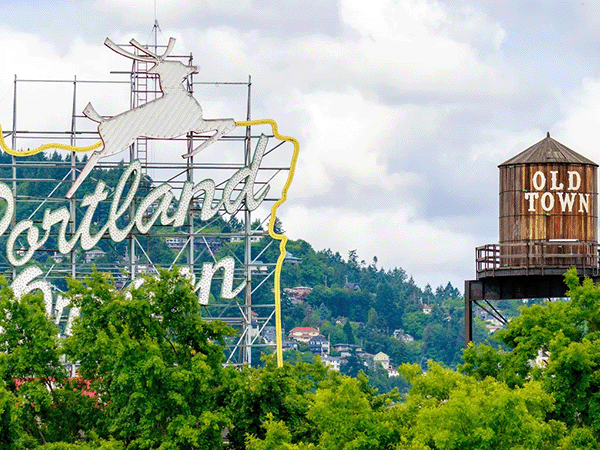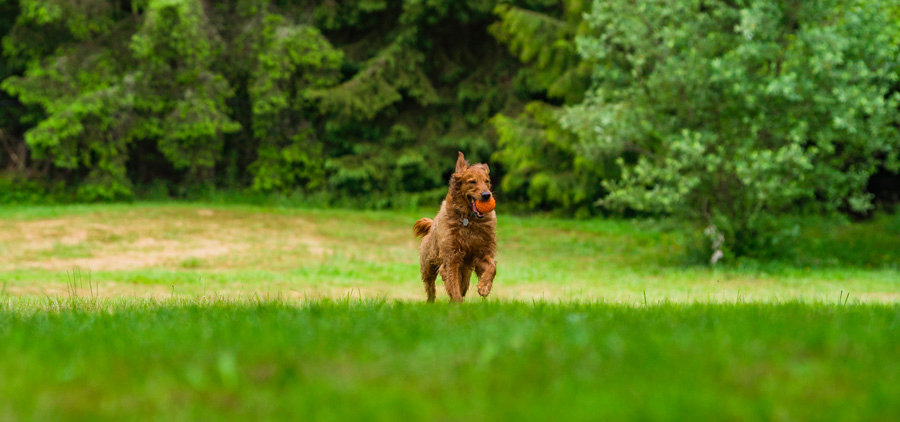Miniature Poodle: The Ultimate Owner's Guide

Discover the Miniature Poodle, a breed celebrated for its affectionate, intelligent, and friendly nature. Recognized as a small dog, Miniature Poodles have their origins in Germany, where they were initially bred for retrieving game from water starting in the 15th century.
In this post, we share insights from nearly 10,000 Sniffspot users, offering practical advice for new and prospective Miniature Poodle owners. Whether you’re considering adopting or rescuing a Miniature Poodle or already have one, you’ll find valuable tips on how to care for and enjoy life with an affectionate Miniature Poodle.
Thinking about welcoming a miniature poodle into your life? Smart, playful, and affectionate, these charming dogs are more than just a pretty face. But are they the right fit for *your* family? We asked thousands of miniature poodle owners in the Sniffspot community to share their wisdom. So get ready to discover everything you need to know about this beloved breed – from history and temperament to the practicalities of daily care.

Source: Sniffspot Community Breed Survey 2024
Miniature Poodle: At a Glance
- Breed Type: Non-sporting
- Size: Small
- Life Expectancy: 12 to 15
- Healthy Weight Range: 10 to 15
- Height Range: 10 to 15
- Temperament: Affectionate, Intelligent, Friendly
- Coat Type: Curly, dense, single coat
- Color: White, black, apricot, cream, gray, blue, brown, and more (solid color)
Key Takeaways
- Miniature Poodles thrive on attention and training: These intelligent and affectionate dogs are eager to please and excel with positive reinforcement, consistent routines, and plenty of mental and physical stimulation.
- Grooming is essential for Mini Poodle health: Their beautiful curly coat requires daily brushing and regular professional grooming to prevent matting and maintain healthy skin.
- Proactive health management is important: Miniature Poodles can be prone to digestive issues and ear infections. Regular vet checkups, a balanced diet, and preventative care are crucial for their well-being.
Meet the Miniature Poodle
According to the hundreds of Sniffspot community users who shared real-world data about their Miniature Poodle, we learned that these dogs are affectionate and intelligent. The Miniature Poodle is also known to be very friendly and social with children and friendly but a bit reserved initially with strangers.
When living with a Mini Poodle, 67% of our owners indicated that a large house with a fenced yard is ideal. Additionally, 58% of owners found that an apartment or condominium with regular walks is also acceptable. This dog is highly trainable by all types of dog owners and owners say that the Miniature Poodle learns best with positive reinforcement, consistent routines, and socialization. Miniature poodles are often confused with other types of poodles, like toy poodles and standard poodles. However, this purebred poodle is unique in its own right.
In terms of exercise, 51% of Sniffspot owners say their Miniature Poodle benefits from moderate exercise every day, including between 1-2 hours of different activity each day, including walks and active play sessions. The Sniffspot Mini Poodle community would recommend this dog for first-time owners.
The Miniature Poodle: Origins and History
The Miniature Poodle has a long and illustrious history, dating back to at least the 15th century. While often associated with France, where they were highly popularized, the breed actually originated in Germany, where they were known as “Pudel” for their exceptional abilities in the water. Originally bred as water retrievers, Poodles were prized for their intelligence, agility, and ability to retrieve game from ponds and lakes. The Miniature variety was developed by breeding smaller Poodles to better serve as companion dogs while still retaining their retrieving instincts.
By the 18th century, Poodles became associated with French nobility, where their curly coats, which could be styled in elaborate ways, made them fashionable companions. They were bred down in size for convenience, and Miniature Poodles became particularly favored for their manageable size and charming personalities. Their intelligence and trainability also made them ideal for performing in circuses and other entertainment, adding to their wide appeal.
Today, Miniature Poodles are loved for their sharp minds, friendly nature, and hypoallergenic coats. They excel in agility and obedience sports, as well as making loyal family pets. Though no longer used for hunting, their strong work ethic and love for mental stimulation make them eager to learn and interact with their human companions.
From Water Retrievers to French Royalty
The Miniature Poodle's story begins in Germany, not France as many assume. As far back as the 15th century, these dogs were known as “Pudel,” a reference to their impressive water skills. Bred as water retrievers, they were highly valued for their intelligence, agility, and ability to retrieve game from ponds and lakes. Imagine these clever canines splashing through the water, retrieving waterfowl for their owners! This background explains their love for water activities, a trait many Miniature Poodles still exhibit today. You might find your Mini Poodle enjoys a good splash at a dog water park or even a playful romp at the beach. Their retrieving instincts also make them excellent candidates for dog training games like fetch.
Over time, Poodles made their way to France. By the 18th century, they had become closely associated with French nobility. Their distinctive curly coats, which could be styled in elaborate and fashionable ways, made them the perfect accessory for the aristocratic set. This association with royalty cemented their status as a symbol of elegance and charm. It's no wonder that Poodles, including Miniatures, remain a popular breed choice for those who appreciate both beauty and brains.
The Poodle's Journey to Miniaturization
While Standard Poodles continued to be prized, a smaller version was also developed: the Miniature Poodle. This miniaturization was intentional, driven by the desire for a companion dog that retained the intelligence and charm of the Standard Poodle but in a more manageable size. These smaller Poodles were easier to handle and care for, making them ideal companions for city living and travel. They quickly became favorites, appreciated for their charming personalities and convenient size. This smaller stature also made them perfect for cuddling up on the couch or joining their owners on adventures to dog parks.
Today, Miniature Poodles continue to be beloved companions. Their sharp minds, friendly nature, and hypoallergenic coats make them a popular choice for families and individuals alike. They excel in obedience and other canine sports, a testament to their intelligence and eagerness to please. And while they may no longer be retrieving ducks from lakes, their playful spirit and love for activity are still very much a part of their DNA. Finding the perfect dog name for your Miniature Poodle can be a fun experience, reflecting their unique personality and history.
Miniature Poodle Temperament and Traits
- Temperament: Affectionate, Intelligent, Friendly
- Energy Level: Moderate
- Trainability: Highly trainable – Learns commands quickly and responds well to training.
- Grooming needs: Very high maintenance – Needs professional grooming services regularly to maintain coat and hygiene.
- Good with Kids: Very friendly and social with children
- Good with Other Pets: Friendly but a bit reserved initially
The Bright Side: Intelligence, Affection, and Playfulness
Miniature Poodles are truly delightful companions, known for their affectionate nature and playful spirit. As one Sniffspot user put it, "They are highly trainable, affectionate, loyal, and almost human-like in their behaviors." Source: Sniffspot Community Breed Survey 2024. This rings true for many Mini Poodle owners, who appreciate their dogs' ability to form strong bonds and become integral members of the family. Their intelligence shines through not only in their trainability but also in their playful interactions. They're always up for a game and eager to please, which makes training a rewarding experience for both dog and owner. This combination of affection, intelligence, and playfulness makes them wonderful companions for people of all ages. BetterPet describes them as "intelligent, active, and affectionate dogs, making them good family pets (with supervision for young children)."
Beyond their playful nature, Miniature Poodles are also known for their adaptability. While they thrive in homes with yards where they can romp and play, they can also adapt well to apartment living, provided they get sufficient exercise. The ASPCA® recommends about 60 minutes of daily exercise for Miniature Poodles, which can be achieved through walks, playtime, and interactive games. Two 30-minute walks are a good starting point, supplemented by engaging activities that keep their minds and bodies active. This adaptability makes them a great choice for city dwellers and those with less access to large open spaces, as long as their exercise needs are met.
Potential Challenges: Separation Anxiety and Attention Needs
While Miniature Poodles offer many wonderful qualities, it's important to be aware of potential challenges. One common issue is separation anxiety. Because they are so attached to their families, they can become distressed when left alone for extended periods. This can manifest in destructive behaviors, excessive barking, or other signs of anxiety. Understanding this predisposition is crucial for Mini Poodle owners. Implementing strategies to mitigate separation anxiety, such as crate training, providing puzzle toys, and establishing a consistent routine, can help ease their stress and prevent unwanted behaviors. Finding dog-friendly spaces where your dog can socialize and play can also be beneficial. You can discover local dog parks and other dog-friendly amenities on Sniffspot.
Another consideration is their need for attention. Miniature Poodles thrive on interaction and can become bored or restless if left to their own devices for too long. A comment on Quora mentioned that they "require constant attention." While somewhat less active than Standard Poodles, they still require regular engagement and mental stimulation, as noted by PetMD. This means setting aside time for play, training, and other activities that keep them entertained and fulfilled. Failing to meet their attention needs can lead to behavioral issues, so it's essential to be prepared to provide them with the companionship and stimulation they crave. PetMD also points out that this breed is not low-maintenance; their grooming needs, potential health issues, and need for attention require commitment and resources. However, for those willing to invest the time and effort, the rewards of a Miniature Poodle's companionship are immeasurable.
Miniature Poodle Ownership: What to Expect
As a Miniature Poodle owner, it’s important to know the best dog breed tips and what to expect from current Miniature Poodle owners. These differences distinguish mini poodles from the toy poodle and the standard poodle.

Source: Sniffspot Community Breed Research 2024
Grooming Your Miniature Poodle
Miniature Poodle dogs are a popular breed, but they require very high-maintenance grooming. This means Miniature Poodle owners should expect professional grooming services regularly to maintain coat and hygiene. Miniature Poodle dogs have a curly, dense, single coat, which is ideal for being water-resistant. Their curly, dense, low-shedding coats make them a good fit for allergy-sensitive groups as well, and people with allergies choose mini poodles over other breeds.
To keep your Miniature Poodle’s coat healthy and up to breed standards, get professional grooming services every 4 to 6 weeks with daily brushing to prevent matting. Of the coat types for breeds in the non-sporting group, the grooming needs for Miniature Poodle are considered to be very high maintenance.
Brushing, Bathing, and Professional Grooming
Miniature Poodles are truly stunning dogs, and their gorgeous coats are a big part of their appeal. But that beautiful, curly coat requires regular upkeep. Think of it like a beautiful wool sweater—without regular care, it's going to get matted and tangled. Daily brushing is key to keeping your Miniature Poodle’s coat looking its best and preventing painful mats. Because their coat is so dense, using the right tools is important. A slicker brush and a metal comb are your best friends here. They’ll help you work through the curls and remove any tangles before they become a problem.
While you can bathe your Miniature Poodle at home, professional grooming every 4–6 weeks is highly recommended. A professional groomer has the experience and tools to handle the intricacies of a Poodle’s coat, ensuring it stays healthy and looks fantastic. They can also advise you on the best products and techniques for maintaining your dog's coat between appointments. Plus, regular professional grooming helps keep their skin healthy and prevents issues like skin infections, which can hide beneath that dense fur.
Addressing Tear Staining and Other Grooming Needs
One thing you might notice with your Miniature Poodle is tear staining—those reddish-brown streaks under their eyes. While not usually a health concern, tear staining can be unsightly. There are a number of products available to help manage tear stains, from special wipes to dietary supplements. Talk to your vet about the best options for your dog. They can help you determine the underlying cause of the staining and recommend the most effective approach.
Beyond brushing, bathing, and addressing tear stains, regular grooming also includes nail trims, ear cleaning, and teeth brushing. Keeping your Miniature Poodle’s nails trimmed prevents discomfort and potential joint problems. Their floppy ears can trap moisture and debris, making regular cleaning essential to prevent ear infections. And just like us, regular teeth brushing helps prevent dental disease and keeps their breath fresh. All of these grooming tasks contribute to your Miniature Poodle’s overall health and well-being, ensuring they look and feel their best. If you're looking for a place for your freshly groomed Mini Poodle to show off their new 'do, check out Sniffspot's dog parks—they're the perfect place for a safe and fun outing!
Exercise Essentials for Miniature Poodles
Miniature Poodles require moderate activity each day to live a healthy life. Though one of the most popular dog breeds, Mini Poodles are considered a very athletic, high-energy breed that require plenty of exercise. Mini Poodles make great pets and thrive with between 1-2 hours of activity each day, including walks and active play sessions. Owners of Mini Poodles report their dogs especially love playing with squeaky toys, chasing/playing with a ball or frisbee, and puzzle toys.
When small breeds like Mini Poodles don’t get sufficient exercise, they’re more likely to act out with undesirable behaviors like barking, anxiety, and stubbornness. They need consistent training, mental activity, and regular moderate exercise to avoid excess energy.
Physical Activities: Walks, Runs, and Canine Sports
Miniature Poodles require moderate activity each day to live a healthy life. Though one of the most popular dog breeds, Mini Poodles are considered a very athletic, high-energy breed that require plenty of exercise. Mini Poodles thrive with between one and two hours of activity each day, including walks and active play sessions. Owners of Mini Poodles report their dogs especially love playing with squeaky toys, chasing and playing with a ball or frisbee, and puzzle toys. A dog park with a water feature can be a great way for a Mini Poodle to burn off energy and cool down on a hot day.
When small breeds like Mini Poodles don’t get sufficient exercise, they’re more likely to display undesirable behaviors like barking, anxiety, and stubbornness. Finding safe, enriching spaces for your Mini Poodle to run and play off-leash is key to their physical and mental well-being. Sniffspot offers a variety of private dog parks that provide a secure and stimulating environment for your furry friend.
Mental Enrichment: Puzzles, Games, and Training
Miniature Poodles are highly trainable by all types of dog owners. Owners say that the Miniature Poodle learns best with positive reinforcement, consistent routines, and socialization. Working with a qualified dog trainer can help you establish these routines and teach your Mini Poodle basic commands and fun tricks.
Miniature Poodles need consistent training, mental activity, and regular moderate exercise to avoid excess energy. Puzzle toys, interactive games, and even learning new tricks can provide the mental stimulation a Mini Poodle needs to stay happy and engaged. For inspiration when choosing the perfect name for your new, intelligent companion, browse our list of dog names.
Feeding Your Miniature Poodle: Diet and Nutrition
What should you feed your Miniature Poodle to keep them healthy throughout their life span? As a moderate energy breed, what you feed them is important. A reported 58% of our community feed their Mini Poodle commercial dry kibble.
With moderate exercise, Mini Poodles should eat 0.75 to 1 cup of vet-recommended food to maintain a healthy weight of around 10 to 15 lbs. However, your Miniature Poodle’s ideal weight and food depend on your pet’s sex, activity level, and age.
Choosing the Right Food for Your Miniature Poodle
Like all dogs, Poodles need a balanced diet to thrive. Finding the right food for your Miniature Poodle means considering their specific needs. While general Poodle diet recommendations offer a good starting point, remember that individual dogs, even within the same breed, can have different dietary requirements. Prioritize foods with wholesome ingredients and a good balance of protein, fats, and carbohydrates.
High-protein options are often a good choice, especially for Miniature Poodles known for being picky eaters. Always check the ingredient list and avoid fillers or artificial additives. And, of course, consult with your veterinarian for personalized advice tailored to your Miniature Poodle's age, activity level, and any specific health concerns.
Addressing Picky Eating Habits
Miniature Poodles, especially, can be picky eaters. This can be frustrating for owners, but there are ways to encourage healthy eating habits. Sometimes, simply offering smaller, more frequent meals can make a difference.
If your Miniature Poodle resists new foods, try gradually introducing them, mixing a small amount of the new food with their current favorite. You can also try adding a little something extra to entice them, like a spoonful of plain, unsweetened pumpkin puree or a dollop of xylitol-free peanut butter. Just remember, treats should be given in moderation and shouldn't replace a balanced diet. Patience and consistency are key when dealing with a picky eater. If you're concerned about your Miniature Poodle's eating habits, talk to your vet.
Miniature Poodle Health: Potential Concerns
The Miniature Poodle breed is most prone to digestive issues (e.g., bloating, sensitive stomach) and ear infections. A reported 36% of our Miniature Poodle owners reported digestive issues like constipation, diarrhea, vomiting, and lack of appetite. Mini Poodle’s risk for these challenges increases as they age.
Similarly, 24% reported ear infections caused by allergies, ear mites, or contact dermatitis. Lastly, 24% of Miniature Poodle owners claim their dog struggles with ear infections caused by allergies, ear mites, or contact dermatitis — a common Mini Poodle health concern. If you’re worried about any of these health issues above, talk to your Mini Poodle’s vet.
 Afra Ramio on Unsplash
Afra Ramio on UnsplashCommon Health Issues and Preventative Measures
While Miniature Poodles are generally healthy, they can be prone to certain health issues. According to Sniffspot's community breed research, digestive problems (like bloating and sensitive stomachs) and ear infections are among the most common. In fact, 36% of Miniature Poodle owners in our community reported digestive issues, including constipation, diarrhea, vomiting, and lack of appetite. The risk for these issues increases as these dogs age. Separately, 24% of owners reported ear infections, often caused by allergies, ear mites, or contact dermatitis.
Preventative measures can help minimize these risks. Regularly cleaning your Miniature Poodle’s ears can help prevent infections. For digestive health, consider feeding a high-quality diet formulated for sensitive stomachs. Talk to your vet about appropriate portion sizes and feeding schedules to avoid bloating. Providing plenty of fresh water is also essential. If you notice any changes in your dog’s eating habits, bowel movements, or ear appearance, consult your veterinarian promptly.
The Importance of Health Screenings
Regular veterinary checkups are crucial for your Miniature Poodle’s health. Early detection of health problems is key to effective management. These visits allow your vet to monitor your dog’s overall health, identify potential issues early on, and recommend appropriate preventative care. During these checkups, your vet will likely perform a physical exam, check for parasites, and recommend necessary vaccinations. They can also provide guidance on nutrition, exercise, and other aspects of caring for your Miniature Poodle.
Don't hesitate to discuss any concerns about your Miniature Poodle’s health with your vet. They can offer personalized advice and recommend appropriate diagnostic tests if needed. By prioritizing regular health screenings and preventative care, you can help your Miniature Poodle live a long, happy, and healthy life.
Are Miniature Poodles Friendly?
Another important thing to consider when adopting a Mini Poodle is whether or not this breed fits with your current family. How friendly are Miniature Poodles compared to other small-sized breeds?

Source: Sniffspot Community Breed Survey 2024
With consistent training, you can hone your Mini Poodle’s non-sporting instinct into an affectionate and intelligent family dog. Introducing your pet to positive reinforcement (treats, praise, rewards) and consistent daily training routines early helps them avoid undesirable behaviors like barking, anxiety, and stubbornness. Our community Miniature Poodle owners comment on their pet’s friendliness:
- So so smart! No training is necessary. He just understands everything I say lol, but he does need lots of exercise! (Allison)
- They are hypoallergenic and do not shed. Very intelligent breed and learns easily (M Walker )
- They are very trusting and loyal. and, they are great travelers because of their adaptability. (Kelly)
Training Your Miniature Poodle: Tips and Techniques
Whether you’re adopting a Mini Poodle puppy or an adult Miniature Poodle, training is a significant part of owning a small-sized breed. Without proper training, your Mini Poodle is more likely to display undesirable behaviors such as barking, anxiety, and stubbornness. Providing stimulating activities is a great first step, but this needs to be paired with the right training for your Mini Poodle.
As a non-sporting breed, Miniature Poodles benefit from praise and positive reinforcement. Here’s what our Mini Poodle community recommended based on their experience with their own dogs:
- Positive Reinforcement (100%): This includes treats, praise, rewards, and so on for positive behavior
- Consistent Routines (49%): A consistent training routine allows your pet to get comfortable with expectations
- Socialization (40%): Socializing your dog with other pets, dogs, and people prepares them to interact with the world
As dogs bred for retrieving game from water, Mini Poodles are considered highly trainable by all types of dog owners. However, most current mini poodle owners recommend sourcing your pet from a responsible breeder or shelter.
Early Socialization and Basic Obedience
Introducing your Miniature Poodle to positive reinforcement (treats, praise, rewards) and consistent daily training routines early helps them avoid undesirable behaviors like barking, anxiety, and stubbornness. Start with basic obedience commands like sit, stay, come, and down. Keep training sessions short, fun, and engaging, using plenty of positive reinforcement. Early socialization is also key. Exposing your Mini Poodle to a variety of sights, sounds, people, and other dogs, especially during puppyhood, helps them develop into well-adjusted adults. Consider enrolling in a puppy kindergarten class or visiting dog parks to provide controlled socialization opportunities. Check out Sniffspot for listings in your area.
Remember, consistency is key. A consistent training routine, as recommended by 49% of Mini Poodle owners in the Sniffspot Community Breed Survey 2024, allows your pet to get comfortable with expectations and understand what you're asking of them. This builds a strong foundation for more advanced training later on. Socialization, recommended by 40% of respondents, plays a crucial role in shaping your Mini Poodle's temperament and behavior.
Advanced Training and Canine Sports
Miniature Poodles are intelligent and eager to please, making them highly trainable dogs. Once your Mini Poodle has mastered basic obedience, consider exploring advanced training options or canine sports. Their athleticism and intelligence make them well-suited for activities like agility, obedience trials, and even trick training. The Sniffspot Community Breed Survey 2024 highlights Mini Poodles' excellence in these areas, showcasing their versatility and trainability. They truly thrive on mental and physical challenges.
If you're looking for a fun way to bond with your Mini Poodle and provide them with mental and physical stimulation, canine sports are a great option. Agility courses challenge their athleticism and problem-solving skills, while obedience trials test their precision and responsiveness. Even teaching fun tricks can be a rewarding experience for both you and your dog. Check out resources like this list of top dog trainers on Sniffspot's blog for guidance and inspiration. You might also find local trainers through your veterinarian or other dog owners in your community.
Why Miniature Poodle Owners Adore Their Dogs
We asked Sniffspot Mini Poodle owners what they love the most about their Miniature Poodle pups, and here’s what they had to say:
- Their intelligence. It’s easy to form an emotional connection because they can very quickly get their own read on a person. Stubborn but so smart. Also love their wildness. Poodles get a reputation for being “froo froo” fancy dogs but they love running and being in the outdoors, love regular exercise, dirt, and getting messier. (Rachel)
- She’s affectionate and knows who her family is all around lovely dog. (Skylar)
- Smart, fun, sweet, small but not too small, little poops to pick up, and non-shedding. Good breed for some asthma and allergy-sensitive people groups. (Nikki)
Common Challenges of Miniature Poodle Ownership
Similarly, Mini Poodle owners shared some of the biggest challenges of living with their Miniature Poodle:
- Highly intelligent can make them stubborn and manipulative. (Anon)
- Anxious – our is quite prone to anxiety, particularly separation anxiety which requires a lot of time and effort to correct. Grooming – needs to regularly be groomed to keep a healthy coat. Sensitive – has a sensitive stomach so can be iffy about new foods, but also is just very sensitive to the world. (Sophie)
- Ziti’s biggest challenge is his unusually fussy appetite. (Phil)
- Her barking level can be a bit of a challenge, but her shedding level makes up for it! (Lisa)
Miniature Poodles: A Good Choice for First-Time Owners?

Source: Sniffspot 2024 Community Dog Breed Survey
According to 84% of our Sniffspot community, Miniature Poodles are a great first-time dog. This comes from their affectionate nature and moderate exercise needs. Miniature Poodle owners say it best:
- Smart! Not-loyal, happy to be with anyone and everyone. (Lindsey)
- This is such an adorable breed! Her adult coat is beautiful, and I love the breed’s relatively non-shedding coat. But definitely groom them and brush them regularly to keep the coat from matting. Also, keep an eye out for common disease issues. (Sam)
- Their willingness to learn new things is a joy, both tricks and just learning about the environment around them. (Taylor)
Tips for Miniature Poodle Owners
Luckily, our Sniffspot community is full of experienced, trustworthy Mini Poodle owners. These Miniature Poodle breed owners share the most essential dog breed tips and advice for prospective or new dog owners:
Grooming Costs and Considerations for Miniature Poodles
- Coat grooming is necessary and can be expensive to keep up with their coat’s needs. (Addie)
- They must have reg grooming. Be prepared to be loved on and shadowed. (Starr)
- I have really bad allergies, so my mini poodle is perfect. They’re great for owners with allergies, but make sure you’re ready for the coarse coat texture and constant coat grooming! (Anon)
Keeping Your Miniature Poodle Mentally and Physically Active
- Poodles are a versatile breed. They do require training, like any dog; and love to have a job and be mentally stimulated. My friends, initially unfamiliar with the breed, have all become poodle advocates since they have been introduced to my pups over the years. (CRM)
- Provide any size poodle with lots of mental enrichment as well as exercise. Getting them used to grooming at an early age is definitely beneficial too! (Taylor)
Miniature Poodles: The Ultimate Companion Dog
- Velcro dog – needs a stay-at-home companion or daycare. (Lisa)
- Be prepared to spend a lot of dedicated time with your dog. (FR)
- This can be a good dog for apartment life with their compact body size, and they’re great for owners with allergies. But they do need a lot of brain exercise to make them a calm family pet. (Stacy)
Training Your Miniature Poodle: Patience and Separation Anxiety
- Be patient show them love don’t get angry. Take your time to know the dog. (Skylar)
- Understand you need to be active with this breed and train them. They were originally hunting dogs, most aren’t going to be lapdogs. Also, be patient, the puppy years are a handful but it doesn’t last forever. (Rachel)
Finding a Reputable Breeder or Rescue
Finding the right Miniature Poodle starts with choosing a responsible breeder or rescue organization. A reputable source is key for ensuring the health and temperament of your future companion, and it's something most Mini Poodle owners emphasize. (Sniffspot Community Breed Survey 2024). Breed-specific rescues, like NorCal Poodle Rescue, are excellent resources. As the largest Poodle rescue group in the United States, they're known for their dedication to placing Poodles in loving homes.
When adopting through a rescue, be prepared for an application process. This often includes an application fee, references, a home visit, and verification of veterinary care. This thorough process ensures that the dogs find suitable homes. If you decide to go with a breeder, research carefully. Look for breeders who prioritize health testing and socialize their puppies well. Visiting the breeder and seeing the environment firsthand is always recommended.
The Benefits of Pet Insurance
Miniature Poodles are generally healthy, but like all breeds, they have some common health issues. Digestive problems (like bloating and sensitive stomachs) and ear infections are among the most frequent concerns for Mini Poodles, according to the Sniffspot Community Breed Survey 2024. Regular veterinary care is essential for preventative measures and addressing any health concerns. Pet insurance can be valuable in managing these costs, offering financial protection against unexpected vet bills.
Think of pet insurance as a safety net against the financial burden of unexpected illnesses, injuries, or even routine checkups. While we all hope our dogs stay healthy, having a backup plan offers peace of mind. It lets you focus on your dog's well-being without the added worry of treatment costs. Talk to your vet about potential health concerns and discuss if pet insurance suits your Miniature Poodle's needs.
Similar Breeds
If you're drawn to the Miniature Poodle's intelligence, affectionate nature, and sometimes quirky personality, you might also be interested in a few other breeds with similar characteristics. While no breed is exactly the same, these pups share some of the Miniature Poodle's key traits:
Bichon Frise
The Bichon Frise is often compared to the Miniature Poodle because of its similar size and appearance. Both breeds sport a fluffy white coat (though Bichons are almost exclusively white), and they have that adorable, slightly rounded face. Like Miniature Poodles, Bichons are known for being playful, friendly, and relatively hypoallergenic. If you're looking for a small, cheerful companion, the Bichon Frise might be a good fit.
Cocker Spaniel
While not as similar in appearance, Cocker Spaniels share the Miniature Poodle's playful energy and friendly disposition. Both breeds were originally bred for hunting (Poodles for water retrieving and Cocker Spaniels for flushing birds), so they tend to be intelligent and eager to please. Cocker Spaniels come in a wider variety of colors than Miniature Poodles and have those signature long, floppy ears.
Portuguese Water Dog
For a breed that more closely resembles the Miniature Poodle's build and coat type, consider the Portuguese Water Dog. These athletic dogs have a waterproof coat, similar to the Poodle's, and are known for their intelligence and trainability. Portuguese Water Dogs are energetic and require a good amount of exercise, much like Miniature Poodles. If you're an active individual looking for a water-loving companion, the Portuguese Water Dog might be a great choice.
Of course, if you're specifically interested in the Poodle's hypoallergenic coat, it's worth considering the Toy Poodle and Standard Poodle as well. They share the same basic temperament and coat characteristics as the Miniature Poodle, just in different size packages. Finding the right dog is a personal journey, and exploring similar breeds can help you discover the perfect furry friend for your lifestyle. Looking for a place for your new pup to play? Check out Sniffspot to find dog parks near you!
Frequently Asked Questions about the Miniature Poodle
Miniature Poodle Lifespan: How Long Do They Live?
The average lifespan of a Miniature Poodle is typically between 12 to 15 years.
Miniature Poodle Size and Growth
An adult Miniature Poodle weighs between 10 to 15 pounds and stands between 10 to 15 inches tall.
Miniature Poodle Grooming: How Much Do They Need?
Miniature Poodle dogs require very high-maintenance grooming to keep their coat beautiful. Regular grooming helps to keep their coat clean and manageable. Miniature Poodle dogs have a curly, dense, single-coat coat, which is well-suited for water-resistant. They are considered low shedders.
To maintain your Miniature Poodle’s coat, it’s important to get professional grooming services every 4 to 6 weeks with daily brushing to prevent matting. Among non-sporting breeds, Miniature Poodle grooming is categorized as intense.
Exercise Requirements for Miniature Poodles
Miniature Poodles require moderate activity each day. Though one of the most popular dog breeds, Mini Poodles are classified as a moderately athletic, somewhat high-energy breed. They’re a good fit for active families who can provide both physical and brain exercise.
Mini Poodles are excellent companions and thrive with between 1-2 hours of activity each day, including walks and active play sessions. Owners of Mini Poodles note that their dogs particularly enjoy playing with squeaky toys, chasing/playing with a ball or frisbee, and puzzle toys.
If small breeds like Mini Poodles don’t receive enough exercise, they may develop unwanted behaviors. These dogs need ongoing training, mental stimulation, and consistent exercise to channel their energy effectively.
Miniature Poodles and Children: A Good Mix?
According to our data, Miniature Poodles are very friendly and social with children with children. They’re particularly good for allergy sufferers or those worried about excessive shedding around children.
Miniature Poodles and Other Pets: Getting Along?
Our research indicates that Miniature Poodles are friendly but a bit reserved initially with other pets.
Optimal Diet for a Healthy Miniature Poodle
As a moderate energy breed, the diet of your Mini Poodle is crucial. A significant 58% of our community feed their Mini Poodle commercial dry kibble.
For optimal health, Mini Poodles should consume 0.75 to 1 cup of vet-recommended food to maintain a healthy weight of around 10 to 15 pounds. The exact amount and type of food will depend on your Miniature Poodle’s sex, activity level, and age.
Common Health Issues in Miniature Poodles
The Miniature Poodle breed is particularly prone to digestive issues like constipation, diarrhea, vomiting, and lack of appetite and ear infections caused by allergies, ear mites, or contact dermatitis. Our data shows that 36% of Miniature Poodle owners reported digestive issues like constipation, diarrhea, vomiting, and lack of appetite. Mini Poodle’s risk for these health issues increases as they age.
Additionally, 24% reported ear infections caused by allergies, ear mites, or contact dermatitis. Finally, 24% of Miniature Poodle owners indicated their dog struggles with ear infections caused by allergies, ear mites, or contact dermatitis, which are common Mini Poodle health concerns. If you have concerns about any of these health issues, consult your Mini Poodle’s veterinarian.
Helpful Resources for Miniature Poodle Owners
Whether you’re a current Miniature Poodle dog owner or you’re considering adopting a Mini Poodle, Sniffspot is here to lend a helping hand. Here are some of the most relevant resources for Miniature Poodle owners.
Sources:

Related Articles
- Miniature Poodle: Breed Facts, Experience and Tips from 9K+ Owners
- Explore the Miniature Poodle: Genuine Tips from 9,000+ Owners
- Standard Poodle: Breed Facts, Experience and Tips from 9K+ Owners
- Explore the Standard Poodle: Real-World Advice from 9,000+ Owners
- Pomeranian: Breed Facts, Experience and Tips from 9K+ Owners
Most recent articles
Related articles
Top dog guides per area
Dog training guides

Dog Food Aggression: Why You Shouldn't Punish It
Does your dog ever growl when you walk by their food dish? Maybe they get possessive of treats, carrying them far away and giving you side-eye when you start to approach — or snarling at your other pets or children if they get too close.

Best Dog Fields in the US: 25+ Wide-Open Spaces for Your Pup to Run Free
The best dog fields in the US offer something that traditional enclosed parks simply can't match: acres of open space where your pup can truly stretch their legs and run at full speed. From Colorado's 470-acre prairie meadows to Tennessee's award-winning "Outback," these wide-open spaces allow dogs to roam, explore, and exercise naturally while engaging instincts that cramped urban parks suppress.

The Ultimate Guide to Scent Training for Dogs
Your dog's nose is an amazing tool. Did you know they have 40 times the olfactory receptors than humans? Scent training for dogs taps into this superpower, turning everyday moments into exciting sniff-fests. It's enriching for all types of dogs – reactive, shy, or simply adventurous. Ready to explore the world of scent work for dogs? Let's get started.

Service Dog Training Costs: DIY vs. Pro
More than 80 million Americans rely on their service dogs to help them navigate the world. Task-trained assistance animals perform a huge range of life-changing—in many cases, life-saving—services: These dogs act as eyes for visually impaired handlers, provide mobility support, alert to seizures and blood sugar crashes, interrupt anxiety attacks, remind their people to take medications, and so much more.

How to Deal With Puppy Potty Training Regression
You thought those dreaded middle-of-the-night potty breaks were over. You were finally free from cleaning up puppy puddles. Then, suddenly, your furry friend starts having accidents again. It's frustrating, right? This puppy potty training regression is more common than you think. Don't worry; we'll help you get your pup back on track. We'll cover the common causes, offer practical solutions, and give you actionable steps to tackle this challenge together.

Dirty Dog Syndrome: Causes, Solutions, and Prevention
It's a cringe-worthy moment every dog owner dreads: your furry friend chowing down on something truly disgusting. If your dog has a penchant for poop, you're dealing with coprophagia. It's more common than you think, and thankfully, often manageable. This article explores the reasons behind dirty dog syndrome, from instinct to learned behavior. We'll also give you practical tips to help break this unpleasant habit.

How to Train Your Rescue Dog: A Complete Guide
* All Sniffspot articles are reviewed by certified trainers for quality, please see bottom of article for details *
Dog enrichment guides

Best Dog Water Parks in the US: 15+ Amazing Splash Destinations for Your Pup
Do you have a water-loving dog looking to burn some energy? There are countless dog parks to visit throughout our country — but some of them become far too hot in the midday sun to be safe for your pets to play. That’s why we’ve put together a list of some of the best dog water parks throughout the United States! At these locations, your pup can frolic, splash, and swim to their heart’s content.

Best Dog Fields in the US: 25+ Wide-Open Spaces for Your Pup to Run Free
The best dog fields in the US offer something that traditional enclosed parks simply can't match: acres of open space where your pup can truly stretch their legs and run at full speed. From Colorado's 470-acre prairie meadows to Tennessee's award-winning "Outback," these wide-open spaces allow dogs to roam, explore, and exercise naturally while engaging instincts that cramped urban parks suppress.

Best Toys for Herding Dogs: Keeping Your Pup Happy & Engaged
Herding dogs are amazing, intelligent companions. But that also means they need more than just a simple game of fetch. Finding the right toys for herding dogs is key to keeping them happy and stimulated. This article explores some of the best toys for herding dogs, including options specifically for breeds like Border Collies and Australian Shepherds. We'll help you discover the perfect herding toys for dogs to tap into their natural instincts and keep them entertained for hours.

Tough Dog Toys for Aggressive Chewers: A Practical Guide
Does your dog destroy every toy you give them? Is your house littered with the remnants of plush toys? Are you tired of wasting money on "indestructible" dog toys for aggressive chewers that don't last? Then this post is for you. We'll cover everything you need to know about finding the best dog toys for aggressive chewers, so you can finally give your pup something safe, durable, and fun.

Daily Exercise Calculator: How Much Exercise Does Your Dog Need?
Everyone knows dogs need exercise, but how much is enough? Walks are great, but creating a truly balanced fitness plan means understanding your dog's specific needs. This post helps you develop a daily exercise calculator for your dog, considering breed, age, and lifestyle. We'll cover fun activities, understanding exercise intensity, and recognizing when your pup has had enough. Let's create a plan that keeps your dog happy and healthy!

Complete Guide To Herding With Dogs
* All Sniffspot articles are reviewed by certified trainers for quality, please see bottom of article for details *

Dog Enrichment Activities: The Ultimate Guide
Ever feel like your dog is restless or bored? They may be getting enough exercise, but still need more. That's where enrichment activities for dogs come in. Giving your dog opportunities to sniff, explore, and problem-solve can make a world of difference. Whether you have a puppy, adult, or senior dog, enriching their environment is key for their well-being. Let's explore how to add cognitive enrichment for dogs, even tailoring activities to your dog's breed with breed specific enrichment and fun enrichment games for dogs.
Dog reactivity guides

Rottweiler Aggression: Truth vs. Myth
Many dogs have gotten a bad reputation over the years for being "dangerous breeds." Rottweilers are among them. Like pit bulls and other large, blocky-headed types of dogs, these powerful and beautiful animals are often assumed to be aggressive.

Best Dog Fields in the US: 25+ Wide-Open Spaces for Your Pup to Run Free
The best dog fields in the US offer something that traditional enclosed parks simply can't match: acres of open space where your pup can truly stretch their legs and run at full speed. From Colorado's 470-acre prairie meadows to Tennessee's award-winning "Outback," these wide-open spaces allow dogs to roam, explore, and exercise naturally while engaging instincts that cramped urban parks suppress.

What Is a Reactive Dog? A Practical Guide for Owners
Does your dog suddenly transform into a barking, lunging Tasmanian devil on walks? It's stressful for both of you. If this sounds familiar, you might have a reactive dog. Understanding what is a reactive dog is the first step to calmer walks. We'll explore the common triggers and give you actionable strategies to manage and modify this behavior. Let's turn those stressful walks into enjoyable outings.

How to Socialize a Reactive Dog: A Step-by-Step Guide
Does your dog display reactivity to other pets or people? Maybe they’re a new rescue pup and are still settling into your home. Or they were sick growing up, so you missed their critical socialization period. Possibly they’ve had a bad experience after being raised as a normal puppy.

What Is a Reactive Dog? A Complete Guide
Is your dog overly excited or fearful around other dogs? Do they bark, lunge, or whine? You might have a reactive dog. Many dog owners face this challenge. Understanding what a reactive dog is is the first step to helping them. This guide explores the common causes of dog reactivity, explains what makes a dog reactive, and offers practical tips and resources. Let's work together to build a stronger bond with your dog and enjoy stress-free walks.

9 Best Online Communities for Reactive Dog Parents
Does your dog's reactivity make walks stressful? You're not alone. Many dog owners face similar challenges. This guide offers practical advice and support for managing reactivity, including finding the best online dog training for reactive dogs. We'll connect you with reactive dog support groups, share training tips, and explore resources like the best dog training app for reactive dogs. Let's build a stronger bond with your dog, together.
* All Sniffspot articles are reviewed by certified trainers for quality, please see bottom of article for details *
How To Groom a Reactive Dog
* All Sniffspot articles are reviewed by certified trainers for quality, please see bottom of article for details *
Sniffspot community guides

The State of Public Dog Parks Across the United States
From 2009 to 2020, there was a 40 percent increase in the development of public dog parks. Designated spots for canine exercise have become commonplace in every major city in North America — many pet owners won’t even consider renting an apartment that doesn’t have its own fenced-in pet area for their canine companions.

Best Dog Fields in the US: 25+ Wide-Open Spaces for Your Pup to Run Free
The best dog fields in the US offer something that traditional enclosed parks simply can't match: acres of open space where your pup can truly stretch their legs and run at full speed. From Colorado's 470-acre prairie meadows to Tennessee's award-winning "Outback," these wide-open spaces allow dogs to roam, explore, and exercise naturally while engaging instincts that cramped urban parks suppress.

How This Family is Affording Their Dream Property Through Renting it Hourly to Dogs
Thousand Oaks, California has been a safe haven for Sniffspot host, Jen, since childhood. Having grown up in busy Santa Barbara, Jen, an introvert from an early age, would seek out solitude and serenity away from tourists attractions and droves of people visiting from elsewhere. “My grandparents own 60 acres about a 30 minute drive from here, and I grew up spending every summer and every holiday visiting them on the ranch,” Jen explained. “In Santa Barbara, we wouldn't go to the beach on the weekend because that's where everybody was, so you'd find places off the beaten path where the tourists weren't. For me, the ranch was just my happy place.”

Host Tips: Ellen K. What Makes Sniffspot Successful for Me
Ellen is the host of Country Pasture Getaway, one of Sniffspot's most popular sniff spots. She has taken the time to write up the lessons she has learned about how to be a great sniff spot host.

How this Oregon Farmer is Making a Business From Renting Her Land to Dogs
Just 20 minutes outside of the busy city of Portland, Oregon, and settled right on the banks of the Columbia River, you’ll find what countless visitors have flocked to the area in search of – mountain views, crisp, clean air, and running water for miles. What you might not expect to find, however, is a hidden oasis designed just for dogs and their people, owned and operated by a farming couple and enjoyed by visitors on two legs, and four.

Host Tips: Fran T. Providing Great Guest Service at our Spot
Fran is the host of Ranch Setting, one of Sniffspot's most popular spots. She has taken the time to write up the lessons she has learned about how to be a great Sniffspot host.

How Sniffspot Helped a Nervous Rescue Work Through His Fears and Change His Family’s Life
This is the story of a family and dog rescuing each other.
Top dog trainers in the US

The Best Dog Trainers in the United States of 2026
This is a list of the top dog trainers in the United States, based on votes from the Sniffspot community and the general public.
The Best Dog Trainers in Seattle, WA of 2026
This is a list of the top dog trainers in Seattle, WA, based on votes from the Sniffspot community and the general public.
The Best Dog Trainers in Portland, OR of 2026
This is a list of the top dog trainers in Portland, OR, based on votes from the Sniffspot community and the general public.
The Best Dog Trainers in Los Angeles, CA of 2026
This is a list of the top dog trainers in Los Angeles, CA, based on votes from the Sniffspot community and the general public.
The Best Dog Trainers in New York, NY of 2026
This is a list of the top dog trainers in New York, NY, based on votes from the Sniffspot community and the general public.
City dog parks guides

Top 10 Indoor Dog Parks: A US Guide
Looking for a space to play with your dog no matter what the weather’s like outside? Look no further than our list of the best indoor dog parks in the United States! These climate-controlled spaces are growing in popularity as pet ownership increases throughout the country. As a bonus, many of them also offer dog training, boarding, grooming, or daycare services on the premises.

Best Dog Fields in the US: 25+ Wide-Open Spaces for Your Pup to Run Free
The best dog fields in the US offer something that traditional enclosed parks simply can't match: acres of open space where your pup can truly stretch their legs and run at full speed. From Colorado's 470-acre prairie meadows to Tennessee's award-winning "Outback," these wide-open spaces allow dogs to roam, explore, and exercise naturally while engaging instincts that cramped urban parks suppress.

Best Dog Parks in the US: Ultimate Guide to Public & Private Off-Leash Adventures
Is your pup giving you those pleading "let me run free" eyes? Whether you're a new dog parent or a seasoned pro looking for fresh adventures, finding the perfect off-leash paradise for your furry friend can feel ruff! From sun-soaked California beaches where your water-loving lab can make a splash to mountain trails in Vermont where your adventure buddy can chase every scent, we've sniffed out the 15 best dog parks across America.

Dog Parks Near Me: Las Vegas Edition
Looking for the perfect dog park near me in Las Vegas? You're in luck! This guide explores all the best options for your pup, from public dog parks to private dog parks near me on Sniffspot. We'll help you find the ideal spot for playtime, socializing, and fresh air. Plus, we'll cover essential etiquette and safety tips to ensure a happy visit for everyone. Get ready for some tail-wagging fun!

Top Sniffspot Locations: Find the Perfect Dog Park
Looking for the perfect dog park? Whether you need a wide-open public space or a private, fenced-in spot, this guide will help you find the best dog parks across the US. We'll cover top-rated public parks, the perks of private dog parks, and even explore Sniffspot locations – giving your pup a safe and fun place to play. Ready to find your dog's new favorite spot? Let's go!

Sniffspot: Portland's Best Private Dog Parks
Ready to discover Portland's best dog parks? Whether you're looking for a public park or the unique experience of a private Sniffspot, this guide has you covered. We'll help you find the perfect spot for your pup, with tips on what to bring, how to prepare, and even understanding dog body language. Plus, we'll explore some top Portland dog parks, including public and Sniffspot options, so you can plan your next dog-friendly adventure in the City of Roses.
Portland Dog Parks: Public & Private Options
This page is about public city dog parks and also includes Sniffspot private dog parks. Sniffspot is the largest network of private dog parks for rent in the world!
Small Dog Park Guide: Tips for Finding the Perfect Spot
Finding the perfect dog park for your small breed can be ruff! Big dog parks can be overwhelming, even dangerous, for little pups. This comprehensive guide helps you sniff out the best small dog parks for your pint-sized companion, covering everything from essential safety checklists to top recommendations for small dog parks across the US—including both public spots and private dog parks.
Dogs breeds

German Shepherd Guide: Best Family Dog? Truth from 9K Owners
The German Shepherd Dog (GSDs) are known for their intelligence, loyalty, and striking appearance. They're also incredibly versatile, excelling as working dogs and devoted family companions. This guide covers everything you need to know about GSDs, from understanding their unique traits and rich history to practical advice on training and care. So, whether you're a seasoned GSD owner or just starting your research, let's explore this remarkable breed together.

Best Dog Fields in the US: 25+ Wide-Open Spaces for Your Pup to Run Free
The best dog fields in the US offer something that traditional enclosed parks simply can't match: acres of open space where your pup can truly stretch their legs and run at full speed. From Colorado's 470-acre prairie meadows to Tennessee's award-winning "Outback," these wide-open spaces allow dogs to roam, explore, and exercise naturally while engaging instincts that cramped urban parks suppress.

Labrador Retriever: America's Best Family Dog? Owner Truth
Discover the Labrador Retriever, a breed celebrated for its playful nature, affectionate temperament, and trainability. Labradors are known for their friendly demeanor and adaptability, making them perfect family companions and versatile working dogs. As one of the most popular types of retrievers, Labs are ideal companions for various lifestyles and are recognized by the American Kennel Club (AKC) as an excellent breed for families.

Golden Retriever Advice: The Complete Owner's Guide
Golden Retrievers: they're gorgeous, playful, and incredibly popular. But before you welcome one into your home, you need the right golden retriever advice. This guide draws on the wisdom of nearly 10,000 Golden Retriever owners, offering practical tips for caring for these affectionate dogs. From understanding their high energy levels to mastering grooming and training, we'll cover everything you need to know. So whether you're already a devoted Golden parent or just starting your research, get ready to learn how to give your furry friend the best possible care.

Are American Staffordshire Terriers Good for First-Time Owners: Complete Guide
Think American Staffordshire Terriers are tough? Think again. While their muscular build might intimidate some, these dogs are known for their playful and loyal personalities. This guide draws on the experience of nearly 10,000 AmStaff owners to reveal the truth about this often misunderstood breed. Want to learn more about caring for an American Staffordshire Terrier? You're in the right place.

Australian Shepherd Facts: Breed Info & Care Guide
Discover the Australian Shepherd, an AKC breed celebrated for its trainable, playful, and affectionate nature. Despite its name, the Australian Shepherd is actually a native breed to the United States, originally developed to breed on farms and ranches. Considered a medium dog, Australian Shepherds were bred for herding beginning in the 1950s. As one of the high-energy breeds, Aussies are known for their boundless energy and need for regular exercise, including aerobic exercise.

Essential Husky Facts for Owners: Breed Guide
Discover the Siberian Husky, a breed celebrated for its curious, intelligent, and loyal nature. Considered a medium-sized dog, Siberian Huskies were originally bred in Russia for sledding, beginning in the early 20th Century. Today, they're one of the most popular active breeds in North America.




























